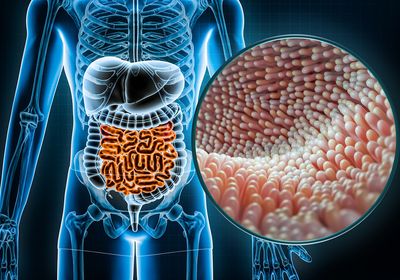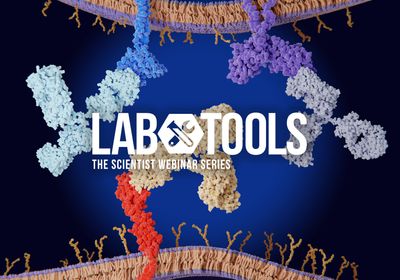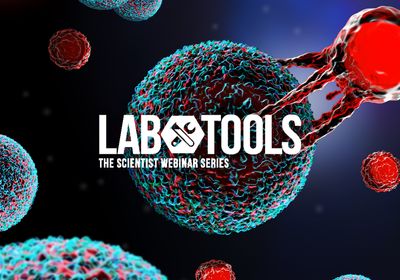ABOVE: Timothy Hand leads a research team at the University of Pittsburgh that investigates how maternal antibodies shape bacterial colonization of infants. University of Pittsburgh
Timothy Hand has been fascinated with science since he was a kid. A curious young explorer of the natural world, he collected insects around his parents’ house and read stories about major scientific discoveries. His fascination with science continued through high school when Hand followed the advice of one of his teachers and set his mind to pursue an immunology major in college. “He said, ‘Immunology is about to explode. It has this huge revolution coming.’ What he meant was the discovery of the toll-like receptors,” Hand recalled. Hand looked into immunology, and he has not looked away since.
Hand’s interest in immunology flourished during graduate school when he explored the immune functions of T cells in the laboratory of Susan Kaech, an immunologist at Yale University in 2003. By the end of graduate school, after spending a couple of years studying T cell responses, he turned his attention to an old interest of his: the microbial world. At that time, researchers were exploring the rich diversity of the intestinal microbiome and investigating how those microorganisms coexist with the immune system. After diving into that research, Hand saw an opportunity to explore the microbial-immune cell interaction by studying antimicrobiome T cell responses in the intestine.
Under the supervision of Yasmine Belkaid, an immunologist at the National Institute of Allergy and Infectious Diseases, Hand started to bridge those two areas of research. “I remember very well how excited he was and full of ideas. He came into the lab with a very clear vision of where he wanted to be and how he wanted to develop his career,” Belkaid said.
In Belkaid’s lab, Hand focused his research on how the microbes in the intestines live side by side with the immune system and what conditions disrupt that peaceful coexistence. In one study, he found that a gastrointestinal infection affects intestinal T cell tolerance to commensal bacteria in mice, making the immune cells lose that tolerance and mount a response against these beneficial microbes that lasts for months.1
While investigating the interactions between the microbiota and intestinal T cells, Hand was intrigued with how the immune system responds to these microscopic inhabitants when they first start assembling in the intestines. “We sort of categorize the colonizers of the intestine into this is a benign commensal, and this is pathogenic. But the bacteria are just trying to grow, and the immune system is trying to retain homeostasis,” he explained. And during the early interactions between microbes and immune cells, “there is an opportunity for that homeostasis to go wrong,” he said.
Now at his laboratory at the University of Pittsburgh, Hand investigates these early interactions between immunity and intestinal microbes, looking at bacterial colonization in newborns. Besides not having microbiota, neonates also lack effective T and B cells. To help infants defend themselves against pathogens, mothers transfer antibodies through their breast milk, which also contains oligosaccharides that are preferentially digested by beneficial bacteria in the intestine. “A mother is trying to drive this microbiome acquisition and development towards the most beneficial organisms,” Hand explained. “That is why we have been so fascinated by this.”
Hand and his team recently showed that a decrease in IgA-bound bacteria in infants associates with the development of necrotizing enterocolitis (NEC), a disease with high mortality and morbidity that links to intestinal inflammation driven by the microbiota. Using a mouse NEC model, they confirmed the role of maternal IgA in preventing NEC as pups reared by IgA-deficient mothers showed increased mortality and developed severe intestinal damage characteristic of the disease.2
Hand’s work uncovering the interaction between immunity and the microbiota during infancy is needed, Belkaid said, as investigating topics related to lactation or early life were neglected for a long time. “I am very proud that Tim has gone there and tried to decode this extremely fundamental line of research around early life.”
References
- Hand TW, et al. Acute gastrointestinal infection induces long-lived microbiota-specific T cell responses. Science. 2012;337(6101):1553-1556.
- Gopalakrishna KP, et al. Maternal IgA protects against the development of necrotizing enterocolitis in preterm infants. Nat Med. 2019;25(7):1110-1115.







